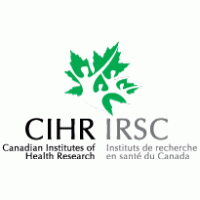The Canadian Association of Psoriasis Patients is pleased to announce the winners of the 2024 studentships in psoriatic disease. Congratulations to all of you!

Darshana Seeburruth, University of Toronto
Project Title:
Improving Psoriasis Treatment Satisfaction: A Comprehensive Study of Patient Preferences and Outcomes.
Primary Supervisor
Dr. Cheryl Rosen,
Research Institution
Summary
Psoriasis is a chronic skin condition affecting 2-4% of Western populations. It impacts physical and emotional well-being and, with more severe involvement, is associated with increased risks of cardiovascular disease, obesity and psoriatic arthritis. While diverse treatments, including topicals, phototherapy, and systemic therapy such as biologics, are available, a gap exists in understanding patient preferences and satisfaction with these treatments. Past research has shown differences between physician and patient-reported outcomes, emphasizing potential inaccuracies in understanding patient preferences. Previous studies have revealed that 25-38% of patients with psoriasis are dissatisfied with their treatment. Surveys further indicate that only 24% of Canadian psoriasis patients are very satisfied with their current treatment. However, no Canadian study has compared treatment satisfaction across various psoriasis therapies using a validated instrument. Recognizing treatment satisfaction as a crucial patient-centered outcome in psoriasis, our study aims to address this gap. The Treatment Satisfaction Questionnaire for Medication (TSQM) is a validated tool assessing satisfaction in four domains: effectiveness, side effects, convenience, and global satisfaction. Using the TSQM, we will measure differences in treatment satisfaction among patients receiving different psoriasis therapies in a real-world clinical setting. Additionally, we will objectively assess disease severity using the Psoriasis Area and Severity Index (PASI) and evaluate the impact on patients' quality of life using the Dermatology Life Quality Index (DLQI). By examining the relationships between treatment satisfaction, disease severity, and quality of life, our study aims to inform more patient-centered care approaches. Ultimately, this research aims to enhance treatment satisfaction in patients with psoriasis, thereby improving adherence, a critical factor for treatment effectiveness in real-world clinical practice. Through a comprehensive understanding of patient preferences, our study seeks to contribute to therapeutic success and enhance the overall quality of life for people with psoriasis.

Isha Singh, University of Toronto
Title:
Primary Supervisor
Dr, Dafna Gladman
Research institution
Summary

Makek Shergill, McMaster University
Project Title
Primary Supervisor
Dr. Mohannad Abu Hilal
Research Institution
McMaster University
Summary
Maxine Joly-Chevrier, University of Montreal
Project Title
Elucidating the Environmental, Socioeconomic and Occupational Risk Factors of Psoriasis: the ESO-PsO Study
Primary Supervisor
Research Institution
Divisions of Dermatology and Experimental Medicine, Faculty of Medicine and Health Sciences, McGill University
Summary
Psoriasis is a major global health burden and causes significant suffering. While significant progress has been made in treating psoriasis, new therapies are often reserved for severe cases. Hence, understanding risk factors for developing psoriasis and working towards its prevention is crucial. We identified that the risk of being diagnosed with psoriasis varies based on the neighborhood in Quebec and that 9 environmental factors are associated with this risk. In this research project, we will study how the area where patients live impacts the risk of developing psoriasis.
Objective 1: We will analyze data from Quebec's health administrative databases covering the period from 1999 to 2022. This analysis will explore factors (neighborhood, pollution, socioeconomic factors, etc.) associated with psoriasis incidence rates and develop a model to account for spatial and temporal variations.
Objective 2: This part of the project will use data from the CanPath cohort, including over 13,000 cases of psoriasis matched with controls. We will validate and extend the results from Objective 1 using machine learning and explore additional risk factors.

Shanti Mehta, University of Toronto
Project Title
The association between glucose intolerance and disease activity in psoriatic arthritis: a retrospective cohort study
Primary Supervisor
Research Institution
Women’s College Hospital
Summary
Psoriasis is a common inflammatory skin condition that affects over one million people in Canada. 20-30% of patients with psoriasis develop psoriatic arthritis, which is an inflammatory disease that affects various joints. Many patients with psoriatic arthritis experience significant functional impairments, and a decreased quality of life. It has previously been found that patients with psoriatic arthritis are at a heightened risk of developing type 2 diabetes, highlighting the potential role of metabolic health in psoriatic arthritis. In this study, we plan to determine whether glucose intolerance, as measured by HbA1C can predict psoriatic arthritis disease outcomes. We will use collected data on HbA1C levels and disease activity (such as the presence of tender or swollen joints) to determine if there is a relationship between the severity of disease and glucose intolerance. The results of this study will enhance our understanding of psoriatic disease and allow for improved psoriatic arthritis patient outcomes through the management of metabolic health and glucose intolerance.

Siddartha Sood, University of Toronto
Project Title
The Economic Burden of Psoriatic Arthritis
Primary Supervisor
Dr. Jensen Yeung, MD, FRCPC
Research Institution
Summary
2024 Sponsors
CAPP is so grateful for the support of our 2024 sponsors, without whom these Studentships would not be possible.











